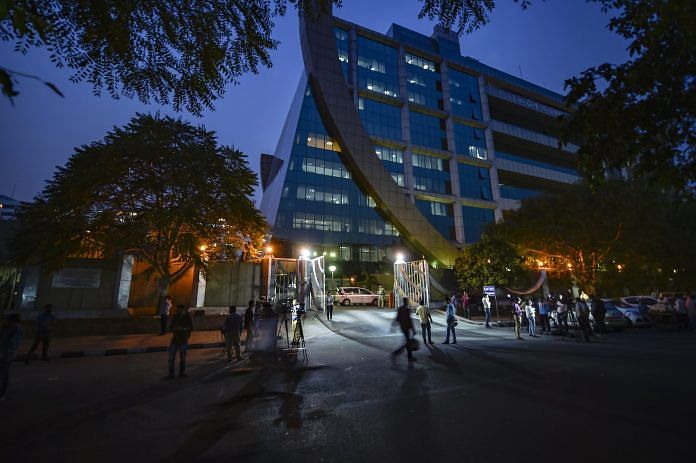New Delhi: The case involving the 2005 murder of Bharatiya Janata Party (BJP) Uttar Pradesh MLA Krishnanand Rai could’ve ended differently if the witnesses had been protected and they did not turn hostile during the trial, according to the special CBI court that delivered the verdict.
Judge Arun Bhardwaj delivered the judgment last week, with all seven accused including gangster-turned-politician Mukhtar Ansari and his MP brother Afzal Ansari being acquitted of the charge of murdering Rai and six others.
The case began with five eyewitnesses, and ended with all of them being discredited to varying degrees, and the impact of this was acknowledged by the court, which asserted that the case had “suffered” because of witnesses turning hostile.
It observed: “The case in hand is another example of prosecution failing due to hostile witnesses. If the witnesses in this case had the benefit of Witness Protection Scheme, 2018, during trial, the result may have been different.”
Three hostile eyewitnesses who killed the case
Rai and the others were being ambushed by armed gunmen while travelling.
The prosecution case depended on a total of five eyewitnesses who were part of the travelling entourage — Anjani Kumar Rai, Manoj Kumar Rai, Ram Kirat Singh, Brijesh Kumar Rai and Krishnanand Rai’s brother Ram Narain Rai.
According to the judgment, three of the five eyewitnesses turned hostile. Two of them, Anjani Kumar and Manoj Kumar, were in the car following the one in which Krishnanand Rai was travelling. The third eyewitness, Ram Kirat Singh, was allegedly driving that second car.
Anjani knew Krishnanand Rai since 1996 and was his political supporter. He submitted that he was shown photographs of seven people, whom he denied having seen at the scene of crime. However, the CBI allegedly made him sign behind the photos. Anjani was then declared hostile.
Manoj Kumar was declared hostile after he denied identifying one of the accused, despite the fact that he had signed behind the photograph.
Ram Kirat also refused to identify the accused as the assailants denied the CBI claim that he was driving the second vehicle.
Another important assertion by the prosecution that the gunmen shouted “maaro saale ko, Mukhtar bhai aur Afzal bhai ko bahut pareshan karta hai (Hit/kill that scoundrel, he makes the lives of Mukhtar bhai and Afzal bhai difficult)”, was not supported by these three eyewitnesses.
Also read: Enmity between Krishnanand Rai & Ansari brothers not grave enough motive for murder: Court
Two eyewitnesses discredited
Notably, the remaining two eyewitnesses were discredited primarily based on the testimony of the three hostile eyewitnesses, who denied the presence of Ram Narain and Brijesh Kumar at the scene.
Anjani Kumar had contended that Ram Narain and Brijesh Kumar were actually in Varanasi at the time of the incident. This was supported by Manoj Kumar and Ram Kirat Singh. All three of them claimed that there were two other people — Uma Shankar Rai and Dhananjay Rai, instead of Ram Narain and Brijesh Kumar — in the second car that day.
The prosecution said the hostile witnesses had made the contention in order to raise suspicions about the presence of the remaining two eyewitnesses on the crime scene. It had further pointed out that this was done even though Uma Shankar and Dhananjay were not examined by any accused persons in defence.
In its inquiry, the court also noted discrepancies in the submissions made by Ram Narain and Brijesh Kumar, pertaining to the manner in which the dead bodies were brought back after the incident. It further noted that no blood-smeared clothes were seized by the police, even though both of them had claimed that their clothes were covered in blood.
Their absence was also substantiated by other witnesses who reached the crime scene after the assailants had fled. Relying on all these testimonies, the court ruled: “Therefore, according to eyewitnesses of the case, PW-35 Ram Narain Rai and PW-37 Brijesh Kumar Rai were not present in the second Qualis vehicle at the time of incident and this statement has also been corroborated by the statements of other witnesses as well as other circumstances noted above.”
Court’s view on witness protection
The court went on to examine the jurisprudence on the protection of witnesses, beginning its analysis by acknowledging that this case had suffered because of the lack of such protection.
“This is a gruesome case involving the murder of seven persons. The investigation of the case was transferred from UP Police to CBI. The trial of the case was also transferred from UP to Delhi. Unfortunately, the case of the prosecution has suffered as all the eyewitnesses and other material witnesses turned hostile,” it observed.
It then took note of several Supreme Court judgments to emphasise the apex court’s observations on witnesses turning hostile. It also noted that the government has finalised the Witness Protection Scheme, 2018, and the Supreme Court has approved it.
Calling for the scheme to be implemented in letter and spirit, the court observed: “The Hon’ble Supreme Court has given its imprimatur to the scheme and approved the same. The scheme is to be enforced in letter and spirit by the Union of India and States and Union Territories. The scheme is the law under Article 141/142 of the Constitution, till the enactment of suitable Parliamentary and/or State Legislation on the subject.”
Also read: Politicians accused of terror, corruption, murder ride massive majorities into Lok Sabha




If court fails to deliver judgment because the executive has not protected the witness, the victim will take law into his own hands…
Very much the same thing has happened in the Sohrabuddin fake encounter trial.
Court should also see it as injustice to the victim.